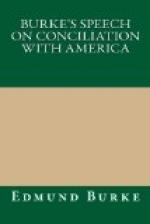With the ministry safely in hand, he turned his attention to the House of Commons. The old Whigs had set an example, which George was shrewd enough to follow. Walpole and Newcastle had succeeded in giving England one of the most peaceful and prosperous governments within in the previous history of the nation, but their methods were corrupt. With much of the judgment, penetration and wise forbearance which marks a statesman, Walpole’s distinctive qualities of mind eminently fitted him for political intrigue; Newcastle was still worse, and has the distinction of being the premier under whose administration the revolt against official corruption first received the support of the public.
For near a hundred years, the territorial distribution of seats in the House had remained the same, while the centres of population had shifted along with those of trade and new industries. Great towns were without representation, while boroughs, such as Old Sarum, without a single voter, still claimed, and had, a seat in Parliament. Such districts, or “rotten boroughs,” were owned and controlled by many of the great landowners. Both Walpole and Newcastle resorted to the outright purchase of these seats, and when the time came George did not shrink from doing the same thing. He went even further. All preferments of whatsoever sort were bestowed upon those who would do his bidding, and the business of bribery assumed such proportions that an office was opened at the Treasury for this purpose, from which twenty-five thousand pounds are said to have passed in a single day. Parliament had been for a long time only partially representative of the people; it now ceased to be so almost completely.
With, the support which such methods secured, along with encouragement from his ministers, the king was prepared to put in operation his policy for regulating the affairs of America. Writs of Assistance (1761) were followed by the passage of the Stamp Act (1765). The ostensible object of both these measures was to help pay the debt incurred by the French war, but the real purpose lay deeper, and was nothing more or less than the ultimate extension of parliamentary rule, in great things as well as small, to America. At this crisis, so momentous for the colonists, the Rockingham ministry was formed, and Burke, together with Pitt, supported a motion for the unconditional repeal of the Stamp Act. After much wrangling, the motion was carried, and the first blunder of the mother country seemed to have been smoothed over.




